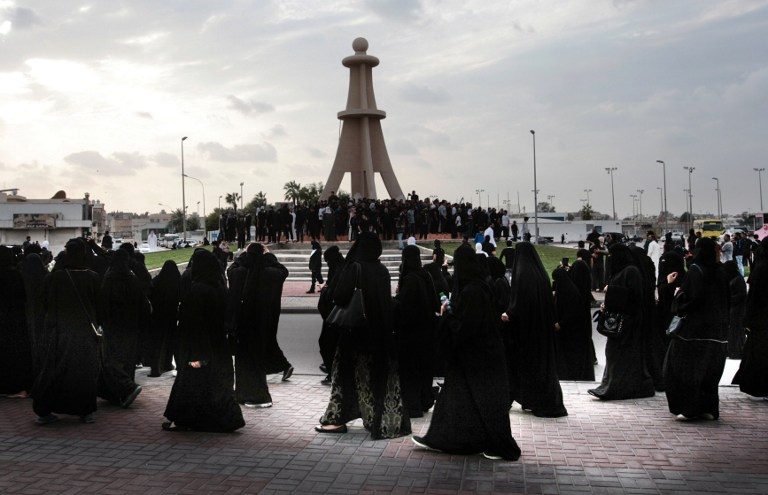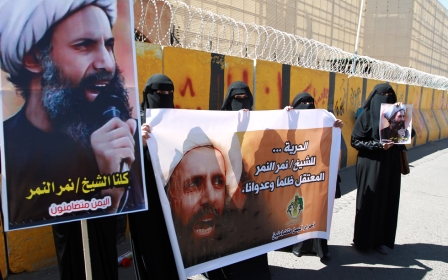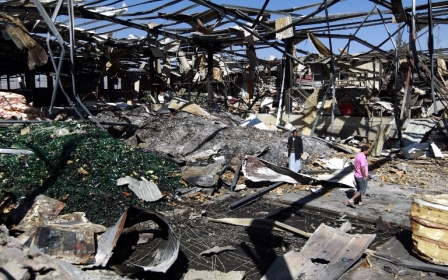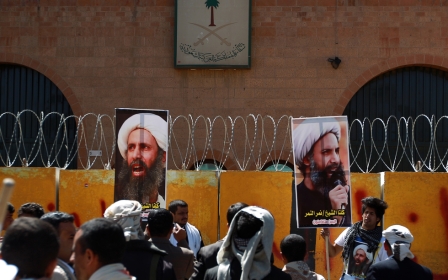ANALYSIS: Saudi mass executions about political survival

Less than a message to Tehran or a defiance of Western opinion, Saudi Arabia’s decision to carry out a mass execution on Saturday, including the killing of a high-profile Shia cleric, is a survival move by a kingdom still shaken by the Arab uprisings of 2011 and a leadership in a power struggle, say some analysts.
The act has already had wide-reaching ramifications. Going forward, Saudi may lose countries currently fighting with its coalition in Yemen and any detente between Iran and the kingdom that many hoped could bring the Syrian civil war to an end is less likely to come to fruition. Experts say the move only aggravates fragile Shia-Sunni tensions.
While blowback seems inevitable, the executions show that Saudi leaders who backed the killings believe the threat posed by protests in the country’s Eastern Province - and the constituency they have curried favour with as a result of killing al-Qaeda linked figures - outweigh the downside of the regional consequences that may follow, say analysts.
Since 2011, there have been sporadic Arab Spring-inspired protests in Saudi’s Eastern Province, home to the country’s Shia minority – who make up 10 to 15 percent of the kingdom’s 29 million population.
Locals say the government discriminates against them in employment and education among other areas, issues they demonstrated against in the protests brutally put down by security forces leading to tens of people being killed.
Authorities have repeatedly denied accusations of discrimination and said they are fighting an armed uprising against the government.
Sheikh Nimr al-Nimr, 56, was a driving force behind the start of the protests and with his execution is the message that dissent in the area will not be permitted.
“There were protests by people in Eastern Province, and they don’t want to tolerate any protests,” Andrew Hammond, a recent policy fellow with the European Council on Foreign Relations, told Middle East Eye.
Many protesters in the Eastern Province, said Hammond, are Shia, and the Sunni leadership uses sectarian themes for various purposes. “But are they driven by hatred of Shia themselves? There is some of that there, but ultimately, they saw a threat from a certain community and they moved against them,” he said.
"It is a clear message to anybody who wants to overthrow the government," said Jamal Khashoggi, a Saudi columnist and general manager of Alarab satellite TV, told MEE on Saturday. "Nimr openly called for overthrow of the system and allegiance to Wilayit al-Faqih [guardianship, or leadership, by an Islamist jurist] [and to] Iran’s supreme leader.”
"That amounts as treason by any democratic country," Khashoggi said. "[His execution] is not about his view as a Shia; it's about his call to overthrow the government and swear allegiance to a foreign leader."
While Nimr received the bulk of media attention, Khashoggi pointed out that the majority of those executed on Saturday were convicted of their involvement in al-Qaeda attacks that killed Saudis and foreigners in the kingdom between 2003 and 2006.
"We the Saudis for quite some time were wondering why the sentencing of al-Qaeda terrorists was taking so long," he said.
"Those criminals did act brutally against innocent civilians [and] they needed to be dealt with, so what happened is, I'm sure, very much welcomed by most Saudis.”
Hammond, however, questioned whether those convicted of links to al-Qaeda, whom Saudi has had a recent history of trying to rehabilitate, had been executed on the same day to make sure the act didn’t look sectarian.
Instead, he said, this is likely an attempt by some in the Saudi leadership to appease the country’s religious establishment “which they’ve decided is absolutely critical to their survival and stability in the short term in this difficult circumstance of the Arab uprising,” he said.
When Nimr was sentenced to death in October 2014, experts suggested to MEE that the Saudi leadership felt it had lost the support of the religious establishment, as well as Sunnis within the country, in light of the Saudis joining the US-led coalition against Islamic State, which is believed to have substantial support in the kingdom, and what were signs of a rapprochement with Iran at that time.
“The majority [of Sunnis] are a bit suspicious of the intentions of the Saudi regime as a result of these regional developments,” Madawi Rashid, visiting professor at the London School of Economics Middle East Centre, told MEE at that time.
The executions come, too, just days after Saudi officials announced a record budget deficit, raised domestic petrol prices by 50 percent overnight with increases expected soon for electricity, water, diesel and kerosene. The finance ministry also hinted that it might tax citizens for the first time, all of which add stress to a leadership with internal fighting afoot.
As Hassan Hassan, associate fellow at Chatham House and co-author of ISIS: Inside the Army of Terror, pointed out in The Guardian, executing Nimr is Saudi’s message “to outsiders and locals alike that no matter what the world says authorities will condemn and execute those who cross the red lines”.
The question, asks Hammond, is whether the leadership's attempt to stabilise its position will make it more secure in the long or even short term - or create more instability than it was worth.
New MEE newsletter: Jerusalem Dispatch
Sign up to get the latest insights and analysis on Israel-Palestine, alongside Turkey Unpacked and other MEE newsletters
Middle East Eye delivers independent and unrivalled coverage and analysis of the Middle East, North Africa and beyond. To learn more about republishing this content and the associated fees, please fill out this form. More about MEE can be found here.




